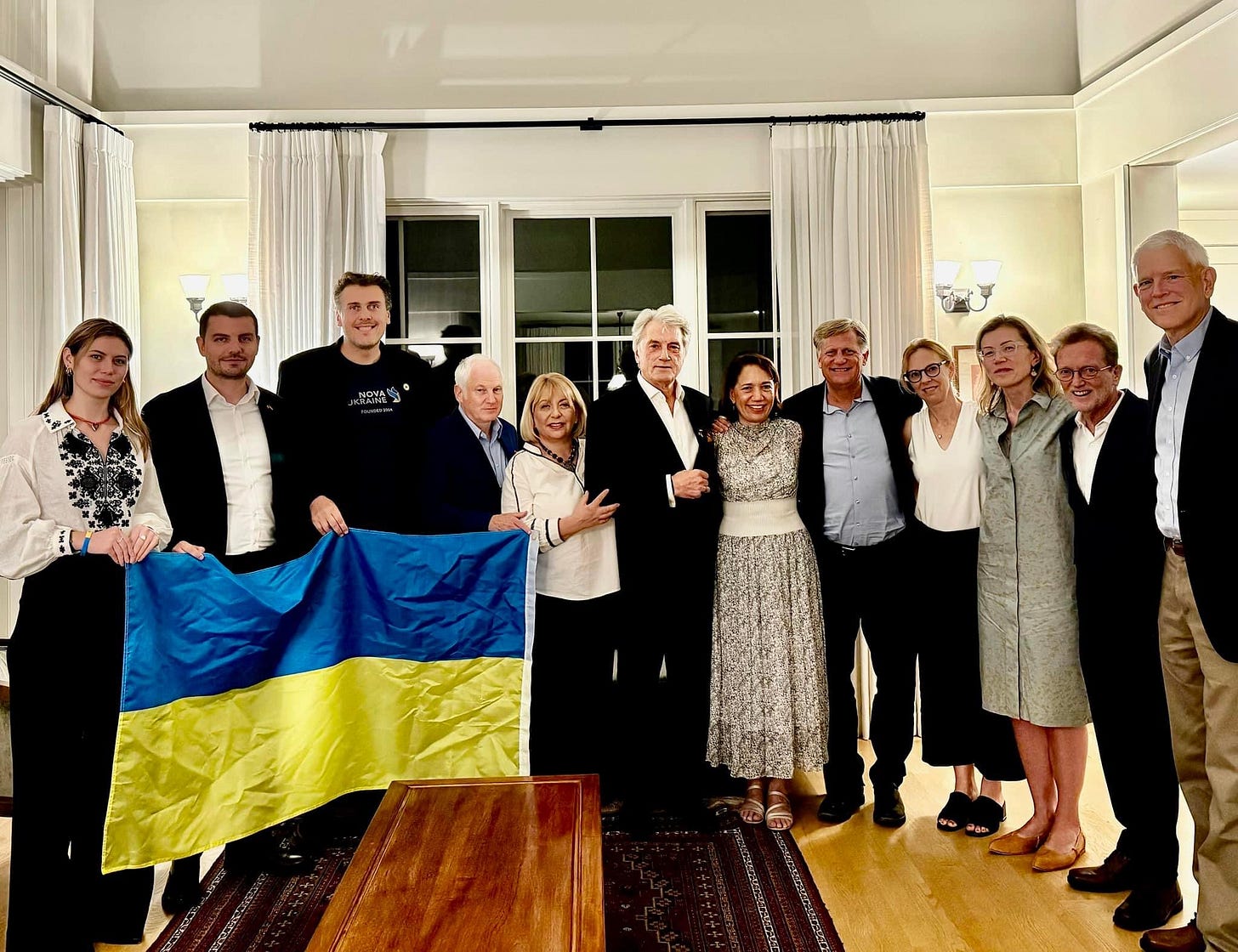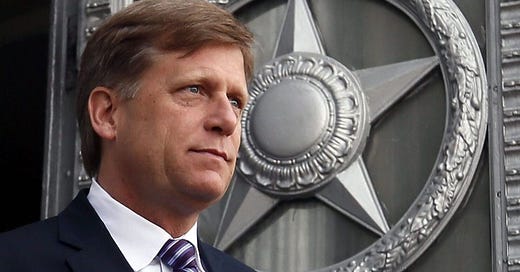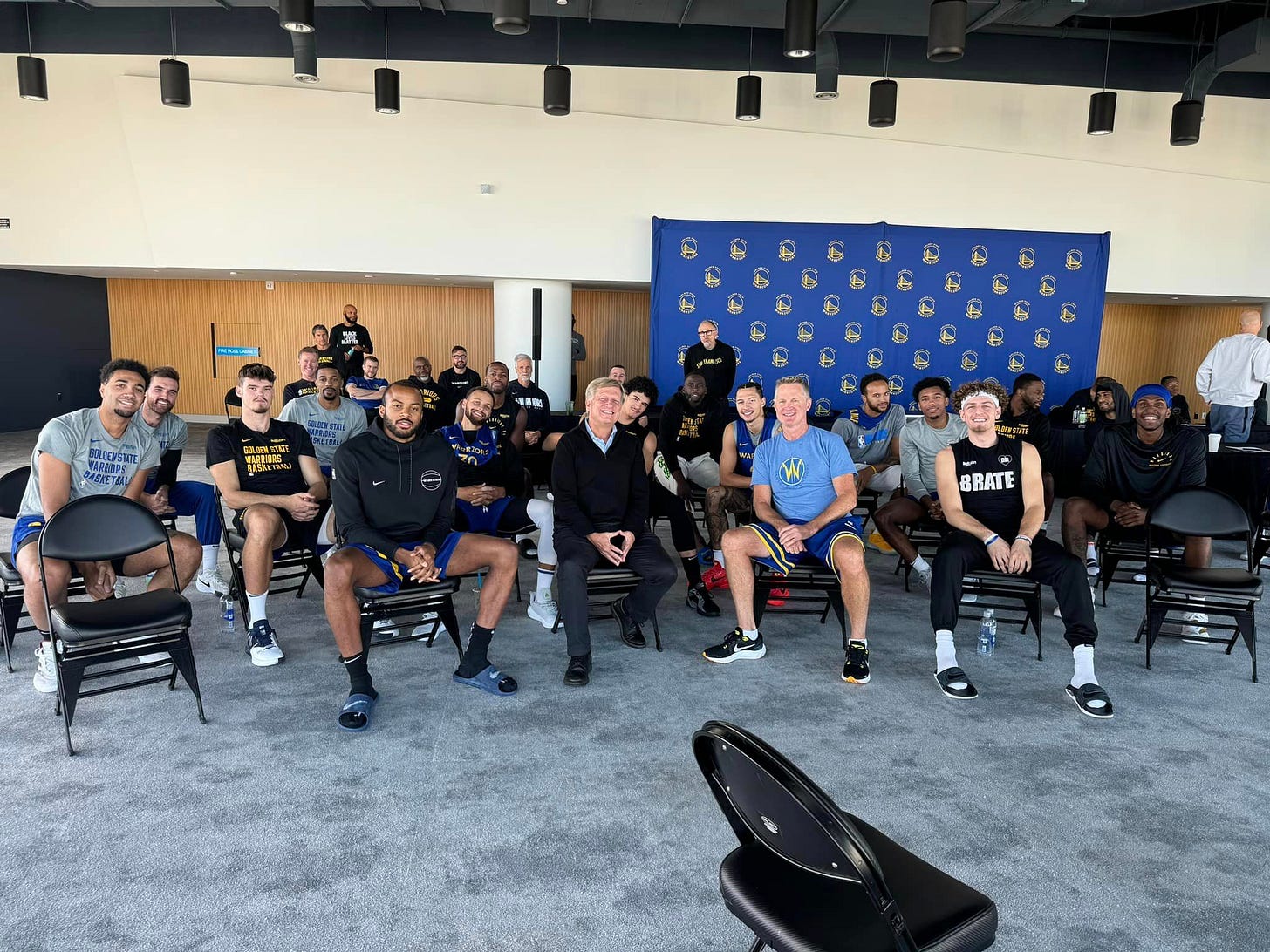Dear Friends and Colleagues,
Since I left the government in 2014, I have been writing a monthly newsletter sharing my activities and publications. Here is the one I wrote for October 2024! As always, I welcome your feedback!
I failed to send a September edition of the newsletter because of travel. In one two-week stretch, I gave talks in Santa Barbara, Berlin, Prague, DC, San Francisco, and New York, followed by three talks in a row at Stanford. But I’m done talking for a while! For the last few months, I’ve also felt compelled to write op-eds about our elections, which kept me away from book writing. But I’m done now with that, too, because one of the most consequential elections in American history happens tomorrow. For the rest of the year, I hope to be mostly at Stanford, trying to finish my book on great power competition by the end of the year. Wish me luck!
The last two months have been eventful.
Most notably in September, the Stanford community celebrated the inauguration of President Jonathan Levin. Our community gathered at Frost Amphitheater for the ceremony, which began with a faculty procession following the university flag. I got a chance to participate in the procession and witness such a historic moment for the university! Read more about it here.
A month later, the Stanford community gathered once again, this time for the Stanford reunion. I gave a lightning talk on why, especially now, we should care about Ukraine, all in 12 minutes. While this year’s version has not yet been posted, feel free to watch the last year’s one here. I also moderated an incredible panel on Global Threats Today: What's at Stake, and What We Can Do About It. We discussed China, wars in Ukraine and the Middle East, global democracy, and climate change. You can watch the panel here.
This month, I also attended two conferences in Europe: the Boris Nemtsov Forum in Berlin and Forum 2000 in Prague. You can watch my remarks from Berlin here, Day 1 and Day 2. Even though both conferences were dedicated to issues of democracy and European security, all anyone really wanted to talk about was Trump. Our allies in Europe are nervous about a potential Trump reelection! Read my trip report here.
At FSI, we’ve been busy too, hosting fantastic discussions with the director of national intelligence in the Biden administration, Avril Haines, the New York Times journalists Chris Buckley and David Sanger, and former Secretary-General of the United Nations Ban Ki-moon, as part of the Annual Trans-Pacific Sustainability Dialogue.
Former President of Ukraine Viktor Yushchenko also visited Stanford, delivering a terrific lecture on what peace could look like and would be acceptable for his homeland. You can read more about his visit here. It was also a real honor for me to host him and his family at my house for dinner. Twenty years ago, I edited a book with Anders Aslund about the Orange Revolution in which Yushchenko was the pivotal actor. (It’s still available on Amazon here!)

Given what I think are huge stakes in our election tomorrow, I spent more time than usual educating and informing the American public about the foreign policy debates in the 2024 U.S. presidential election. On top of my regular commentary on NBC, I also wrote about how Harris’s policies toward Ukraine would differ from those of Trump’s, how Trump’s admiration of Putin is dangerous for America, and how this election is not just about policy differences on tax cuts and regulation. I emphasized that America needs peaceful evolutionary reform, not violent, chaotic revolution. I also published an essay in The Ukrainian Weekly, called “Believe in standing up to dictators? Vote for Harris,” and did a long interview for the Kyiv Independent on the differences between Harris and Trump on Ukraine. You can read it here or watch it here. I felt the stakes were too high in this election for me to stay in my lane as a foreign policy analyst, but I am now ready to stop talking politics and return to my comfort zone of discussing policy.
In the last two weeks, I also had the chance to make two special appearances. Last Monday, I shared the stage with Condoleezza Rice—always an honor—as part of Jim Steyer's class on Foreign Policy and Global Democracy. We talked about elections, the state of American democracy, Russia/Ukraine, the Middle East, and China. The second talk was one of the coolest ones I’ve ever done; I chatted with the head coach of the Golden State Warriors, Steve Kerr, and the Warriors team about international politics for an hour before their practice. Thanks, coach, for the invite! Watching the practice was awesome, too, especially for my son! Here is a clip of what Kerr said about our session.
I also continue to coordinate the International Working Group on Russian Sanctions and remain in close contact with my Ukrainian colleagues. In June, we published our latest (20th) paper, Export Controls: A Key G-7 Tool to Halt Russia’s War. As always, we are looking for new ideas, so if you have any, please share!
At FSI, we have many more events coming up. To stay updated on events, opportunities, and policy recommendations by scholars at the Freeman Spogli Institute for International Studies, please sign up for FSI email blasts and follow us on LinkedIn. As always, feel free to share your comments on the content below and any suggestions for improving this newsletter. To sign up for the newsletter, please click here. I hope you join us here at FSI and Stanford for our amazing events!
Keep in touch,
Mike






Dear Prof. McFaul:
In theorizing, a political scientist makes an argument and this argument is not necessarily logically sound. It is logically sound if and only if it satisfies The Principles of Reasoning but it appears to me that your arguments to not satisfy these principles.
These principles are "entropy minimax," as described by the late theoretical physicist Ronald Christensen in the seven volume treatise on this topic that is titled "The Entropy Minimax Sourcebook.: The Stanford library contains a copy of this treatise, I think.
"Entropy minimax" is the solution to the ancient, previously unsolved Problem of Indyction, where the problem is of how, in a logically permissible way, to select the inferences that will be made by a model of a physical system, about the conditional outcomes of the events of the future from amongst a larger set of possibilities. After being discovered by Christensen, "entropy minimax" failed to catch on. Instead, the builders of models of physical system selected these inferences, as they had done in the past, by the intuitive rules of thumb that are called "heuristics." However, on each occasion in which a particular heuristic selected a a particular set of inferences for being made by a model of a physical system, a different heuristic selected a different set of inferences for being made by this model. In this way, the heuristics method violated the Law of Non-Contradiction (LNC). The LNC was amongst Aristotle's three Laws of Thought. If you are making this mistake, as I suspect that you are, I'm willing to help you correct this mistake pro bono. I live a few miles from the Stanford campus in Los Altos Hills.
Cordially,
Terry Oldberg
Engineer/Scientist/Public Policy Researcher,
Writer of the Substack entitled "Building A Model Of a Physical System Without Making Any Mistakes."
650-941-0533 ( land line )
terry_oldberg@yahoo.com (email)
Finally! From The Washington Post: Biden Approves Ukraine's use of long-range U.S. weapons inside Russia, reversing policy.